Marriage holds a significant place in our culture, often involving meticulous planning to craft a memorable and perfect celebration. However, the journey towards marriage is invariably winding and complex, especially as one navigates through the 30s, prompting the reflective question, how long should you date before getting engaged in your 30s?
On average, couples might engage anywhere between six months to four years of dating. However, this statistic should not confine your decision, as the ‘right’ time varies remarkably among individuals. The emphasis should be on the rhythm and comfort level between you and your partner, encouraging a pace that is mutually agreeable and organic.
Below, you’ll find these essential inquiries designed to help gauge your readiness for marriage, alongside valuable tips and thoughtful analysis of the advantages and disadvantages of deciding to get engaged in your 30s.
Questions to Ask Yourself Before Getting Engaged in Your 30s
1. How Well Can We Communicate with Each Other?

Healthy and effective communication is a foundation for any strong relationship. It is the basis for setting boundaries, sharing thoughts, verbalizing needs, resolving conflicts, and so on. Here are some characteristics of healthy and effective communication in relationships:
- Clear. Ideas, desires, and thoughts are expressed in an uncomplicated way.
- Engaged. Both parties are actively participating in the conversation. Engaging is not just listening and responding; it also means making eye contact, being emotionally present, and staying attentive.
- Empathetic. You listen to not only your partner’s words but also their point of view. You do not invalidate each other’s feelings. Instead, you give each other the freedom to express yourselves.
- Open. In some cases, compromise is the only solution to a conflict. Openness to finding a middle ground is significant in any relationship.
- Accountable. Sometimes, we have to accept that we are in the wrong. Holding yourself responsible is difficult, but it is a must. Never blame your partner — or other people — for your faults and mistakes.
No one is born with good communication. Rather, it is a skill that takes constant practice and refining. With that said, having healthy communication skills is a positive indicator that you and your partner are ready for the next step.
2. Are We Still in the Honeymoon Phase?
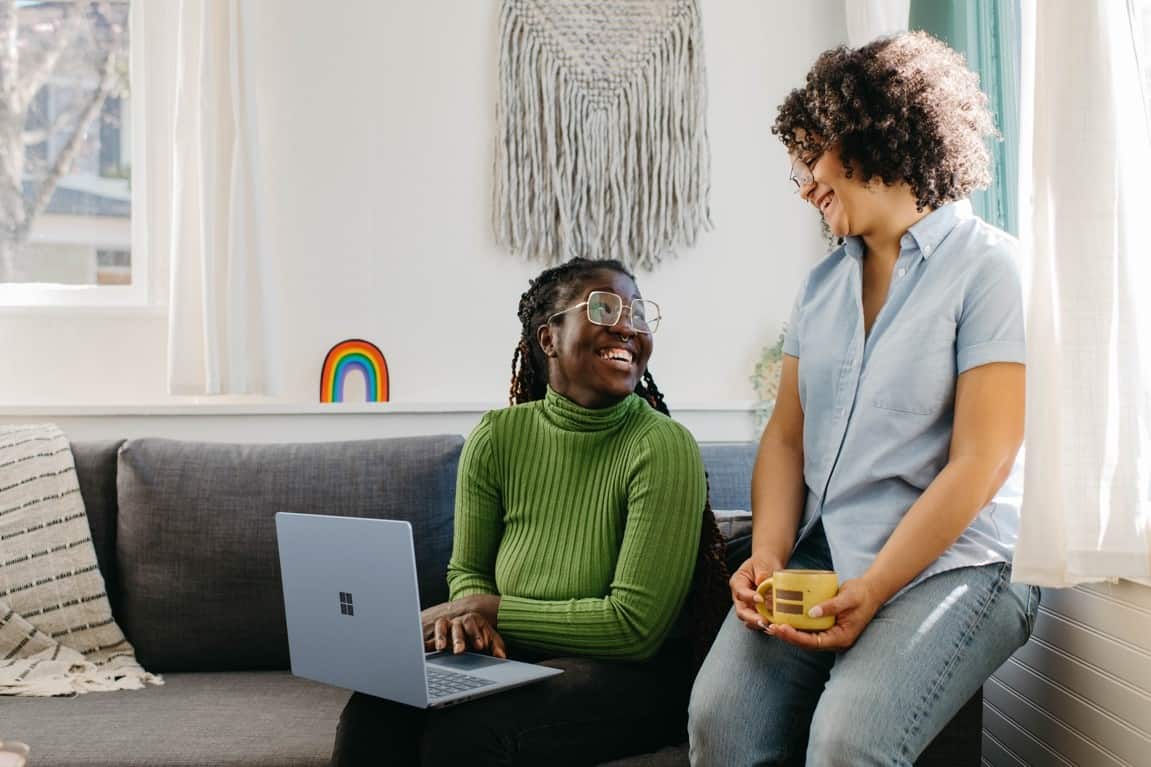
When the relationship is new, couples experience a “honeymoon phase.” During this time, attraction is electric, and everything feels lighter and happier. Everything appears to be perfect, like the relationship itself is too good to be true. This can last for a few weeks, months, to years.
In your honeymoon phase, you might not notice each other’s flaws and shortcomings. Be careful with making life-changing decisions, such as getting engaged, at this point in your relationship.
3. Are We Sexually Compatible?

Sexual fulfillment and compatibility are essential to a durable relationship. Studies have found that satisfying sex makes married people significantly happier. A happy couple has a healthier relationship than those who feel discontent with the sexual aspect of their relationship.
Whether consciously or not, you determine your sexual compatibility throughout your dating period. This includes liking the same things, experimenting together, establishing boundaries, respecting preferences, and being honest.
4. How Well Do I Know My Partner?
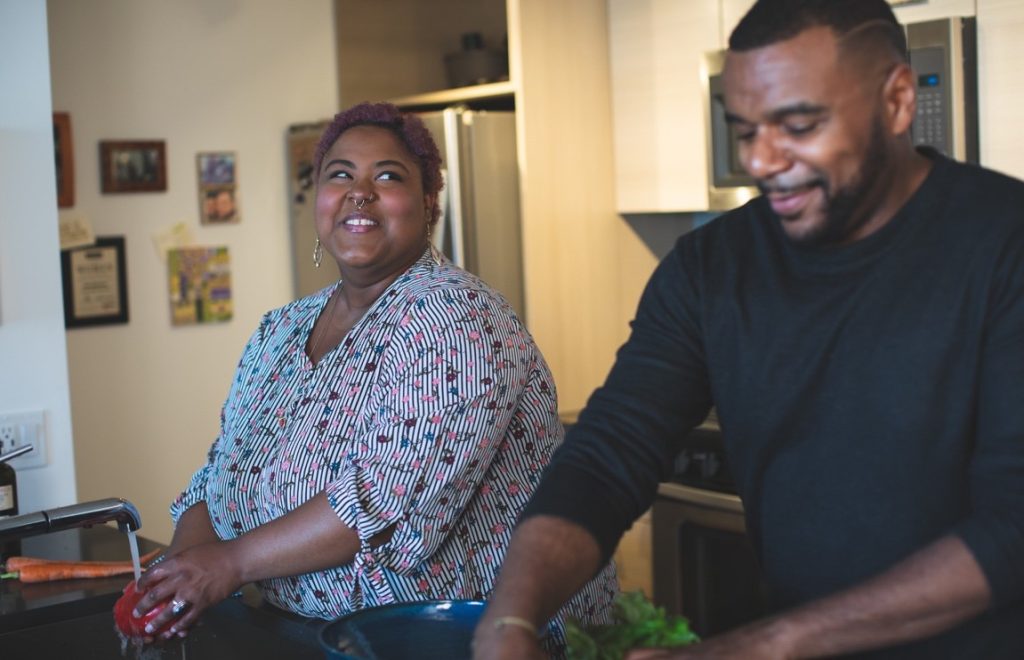
One of the purposes of prolonging a relationship is to know each other better. There are things about your partner you will only discover after weeks or months of being together.
You can get important information during casual or heartfelt conversations with your partner. However, there are games you can play, such as 20 Questions or Never Have I Ever, that will make this process more fun.
Likewise, moving in with them can open your eyes to each other’s traits and habits. Experiencing major life events together is another way to know your partner better.
If you feel that you do not know your partner well enough, that means you need to spend more time dating them.
5. Are Our Goals Aligned?

Any person, regardless of age, will have goals. In a relationship, these goals are not always the same for both persons. For instance, one person may be career-oriented, while the other may want to start a family soon.
Talking about your goals and visions is a must, especially engagement and marriage are on the table. Unaligned goals are not necessarily red flags. However, if you are unable to reconcile, work around, or compromise on these goals, it might be best to wait a little more.
6. Are Our Values Aligned?
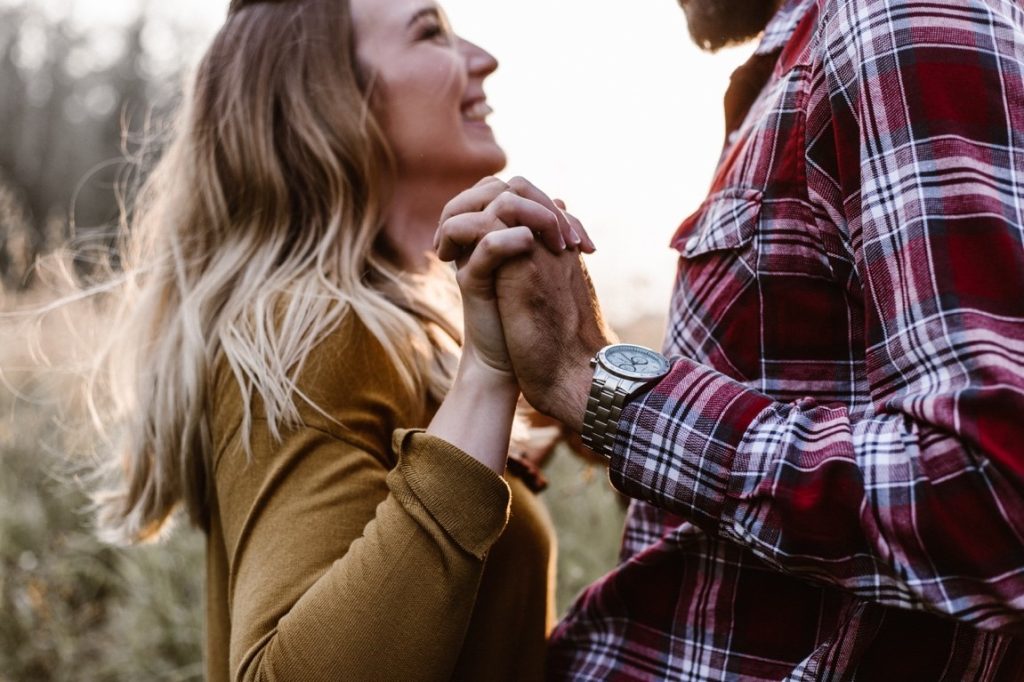
Morals and beliefs underpin a lot of our everyday life. They dictate how we treat the people around us. They influence how we react and respond to various situations. They affect our habits, goals, and visions.
It is important that you and your partner share the same morals and beliefs. After all, whom you choose to be with directly impacts your life and well-being. Without mutual respect, a healthy and long-lasting relationship cannot be created.
7. Will They Be a Good Parent?
You and your partner may have expressed that starting a family is your goal. However, you must determine what kind of parent they will be. This goes hand-in-hand with their communication skills, values, and other personality traits. As someone once said, “You can choose your partner, but your kids cannot choose their parents.”
8. Are They the One?

One benefit of not getting married in your 20s is you have had more time to explore and date people. You may have entered a few casual or serious relationships. If that is the case, you probably have developed standards and expectations.
People say that when the right person comes, you will know. Even after the honeymoon phase, they still feel like “the one.” They understand you, and you understand them, as no one else has. If you think they are “the one” for you, you should highly consider getting engaged.
Other indicators that they might be “the one” you are waiting for include:
- They inspire you to be the best version of yourself every day.
- You envision a life with them; you see yourself waking up by their side every morning.
- They fit well into other parts of life. Your friends and family love them, and they actively try to love what you love.
- They always make sure you feel included in other parts of their life.
9. Why Are You Getting Married in the First Place?
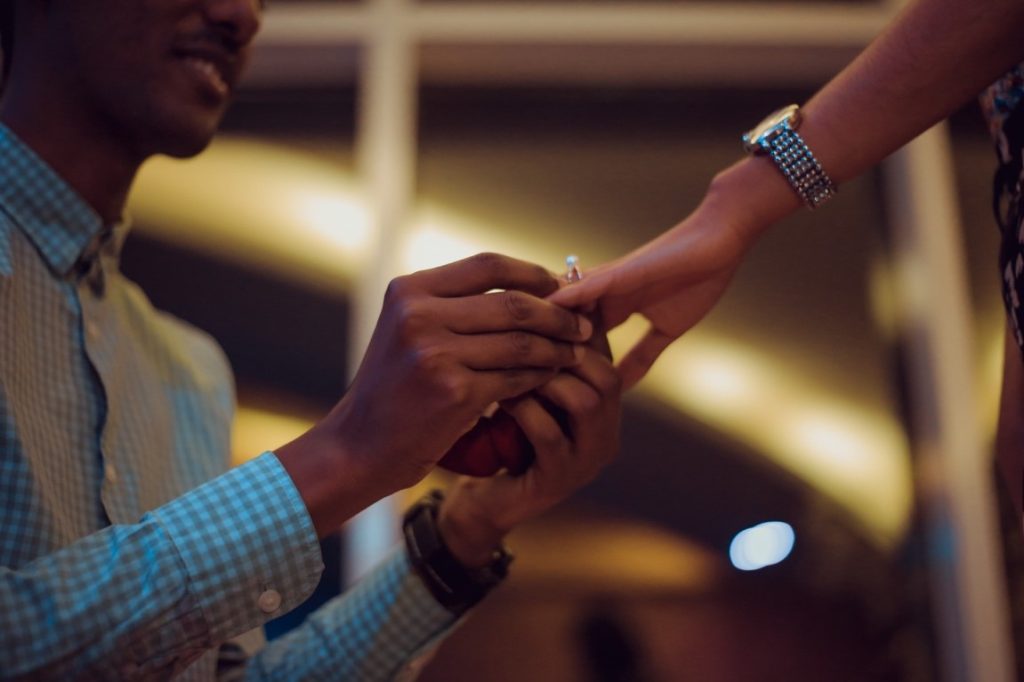
Marriages are not always formed out of love. For some, getting married is an economic proposition. For others, it is a familial obligation they have no choice but to follow. It is a privilege to marry the person you love.
Before considering engagement, ask yourself first about your motivations for marriage. No one can tell you what is right and what is wrong; ultimately, the decision is yours to make. However, years down the line, you might become unhappy or discontent.
10. Are We Financially Capable of Having a Wedding?

Weddings can get very expensive. The cost of a traditional wedding can go up to $28,000. Even small weddings and elopements can cost several thousand dollars. This is a financial burden that not everyone can handle.
Think about your priorities when it comes to your wedding. If you and your partner envision a large wedding, you must be prepared to spend tens of thousands of dollars. If you want to get married as soon as possible, you can opt for a civil ceremony at a city hall; the grand ceremony and reception can come later after months of saving up.
How Long to Date Before Getting Engaged in Your 30s? Ask these questions first…

Reflect on Your Thoughts About Marriage
Not everyone feels the same way about marriage. While others may have dreamed about it since childhood, some do not think about it at all. Where do you fall in that spectrum?
It is perfectly fine if you figure out that marriage is not for you. You may want to stay single forever, or you are content with just dating. Regardless, inform your partner about this so you can figure out your next steps together.
There Is No Timeline
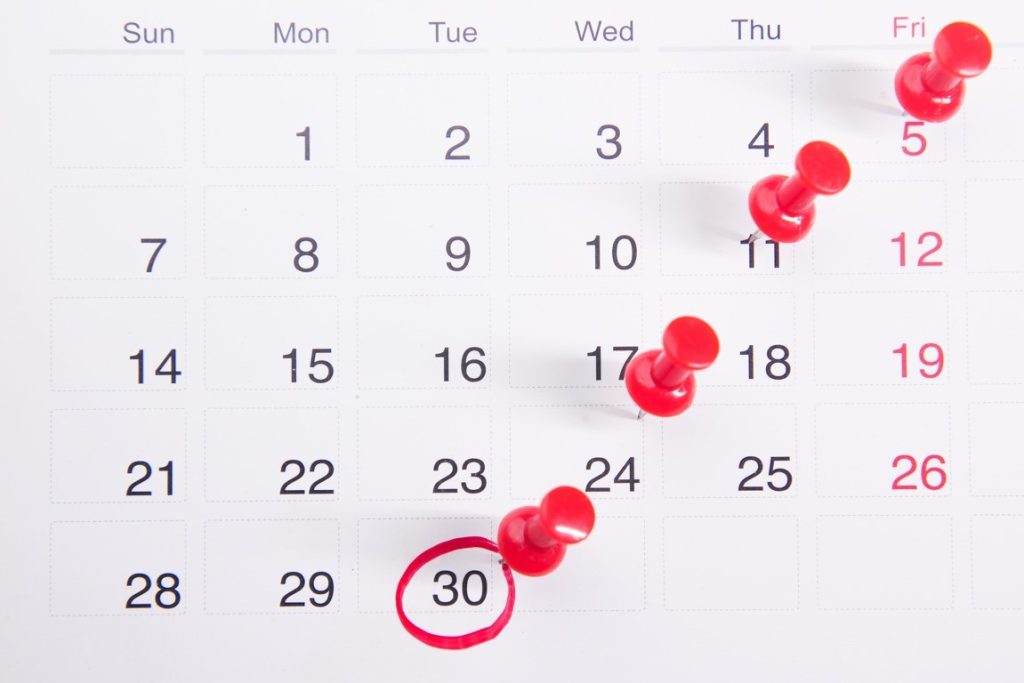
Regardless of your age, there is no foolproof timeline to dating. The success and healthiness of a relationship are not exclusively tied to how long you dated. Couples who dated for three months before getting engaged may have similar levels of satisfaction to those who dated for years.
Likewise, you might have started dating at age 20, 25, 30, or 35. You might have a lot, some, or no experience at all in romantic relationships. Do not let anyone shame you for how you have gone through life.
Drown Out External Pressures

At this point, your family or friends might be pressuring you to get married. Certain cultures emphasize the importance of marriage and starting a family. They might even start introducing you to other people to fast-track the process.
Sometimes, we unwittingly put this pressure on ourselves. We might see friends our age starting their own families in their 30s. We might see their newly purchased home or adorable children going to school and think, “What am I doing? Why do I not have what they have?”
As much as possible, do not listen to these pressures. You might end up making a rash decision that will leave you unhappy and discontent. Relationships take time to form and mature. You, and everyone around you, must respect that.
Visit an Individual and Couples Therapist

In recent years, more and more people have been visiting therapists. Therapy is a great tool for self-healing and improvement. By attending individual therapy sessions, you are giving yourself a chance to better yourself.
Moreover, you are letting yourself heal from past traumas and baggage. This is an important step in creating a healthy relationship. Without healing, you are bound to deal with conflicts in unproductive and harmful ways.
Nothing has to be broken for you and your partner to attend couples’ therapy or marriage counseling. Therapy or counseling sessions will empower both of you to be the best versions of yourself. You will be given the tools to keep your relationship healthy and respectful.
Pros and Cons of Getting Engaged in Your 30s
Pros of Getting Engaged in Your 30s

- You are more likely to have financial security. At this point, you may have been working for over 10 years. Depending on your financial literacy, your savings and investments may have accumulated. This makes you better prepared to buy a home, start a family, and raise children.
- You have had your fun. Being in your 20s is an exciting time. This is a great time to explore, travel, and meet people. Since you have had that opportunity, you will be more content in your 30s.
- You are wiser. In some respects, age makes us smarter. Corollary to the above statement, your experiences and mistakes will give you wisdom and strength. You know yourself and are secure in your identity. This will be highly useful when you get engaged in your 30s.
- You know your partner better. You have probably taken your time to get to know your partner better. This includes moving in with each other and seeing what it is like to live together.
Cons of Getting Engaged in Your 30s

- Your fertility is decreasing. If your goal is to start a family, it might not be wise to wait until your 30s. By the time a woman reaches her mid-30s, it is significantly more challenging to get pregnant.
- You have less time with your family. The average life expectancy in the US is 79 years. This sounds morbid but waiting until later to start a family might mean that you will have less time with them. Couples who married in their 20s might have around 50 years, while you might have around 40 years.
- Your career might be affected. Marriage and parenting are big responsibilities; they take a lot of time and energy. If you have spent years cultivating your professional career, be prepared to make adjustments and sacrifices.
Final Thoughts
Contemplating how long to date before getting engaged in your 30s can be complex and nuanced, making self-reflection and open communication with your partner crucial. Deliberate consideration of shared values, life goals, and compatibility will serve as a guide in this significant decision-making process.
Every relationship unfolds at its own pace, making it essential to navigate this journey without succumbing to external pressures or societal expectations. Understanding that there’s no one-size-fits-all answer, it’s vital to move forward in a way that feels right and authentic for both individuals involved.